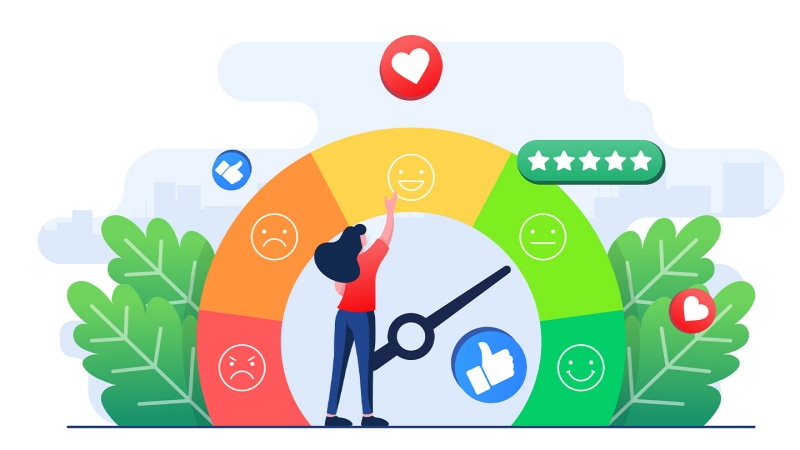750 credit score: A guide to credit scores

Quick insights
- A 750 credit score puts you into the “very good” or “excellent” credit score range.
- Having a 750 credit score can possibly grant you financial opportunities you may not otherwise receive with a lower credit score.
- You can continue to improve your 750 credit score and land premium credit cards and more ideal interest rates.
Reaching a 750 credit score is a major accomplishment and you’re probably feeling excited to see such a high number. But why is this good score and what does it mean? Let’s explore this in more detail below.
The benefits of a 750 credit score
Your 750 credit score falls into the “excellent” range for VantageScore® and “very good” for a FICO® score. It’s considered above average, with the average VantageScore score being around 702 as of 2023. Joining this tier could potentially offer several benefits, including but not limited to:
- Access to lower interest rates and more favorable loan terms.
- A better chance of getting approved for credit cards of your choice, including those that come with perks and rewards.
- Increased chances of loan approval for mortgages, auto loans and personal loans.
- Lower insurance premiums for auto and home insurance.
- Higher credit limits and better credit card offers.
Additionally, with a 750 credit score, you are setting yourself up for future success. According to Experian™, one of the three major credit bureaus, only 1% of consumers with a “very good” FICO® Score may become delinquent in their financial future.
If you’re curious to learn more about your credit score and what it means, enroll in Chase Credit Journey®, an online tool where you can view your score for free. With this tool, you can learn more about how to help improve your score and the factors that affect your score, which we will address more in detail below.
Improving your 750 credit score
If you have a 750 credit score, you’ve likely built up some healthy financial habits that have contributed to this positive score. But can you take it to the next level? After all, an even higher score could land you some even better terms for loans and you may have access to premium credit cards. What does it take to bring your score to “exceptional” or 800-850?
Factors that impact your score
To continue to improve your credit score, focus on these factors and find ways you can take it a step further. These include:
- Payment history—your ability to make your payments on time. This is a major factor weighed into your credit score, so if you miss your payments, you may find it difficult to achieve, maintain or improve a 750 score.
- Credit utilization ratio—the amount of credit you use against your total available credit. Generally, those with a 750 credit score keep their credit utilization ratio to 30% or less.
- Credit mix—the diversity of accounts and forms of credit you have. Lenders like to see a variety of accounts in your credit report to see that you can confidently manage several types of accounts. According to Experian, about 36% of people with a 750 FICO score have an auto loan on their credit report, and 33% have a mortgage listed on their credit report.
- Age of credit—the longer your accounts have been opened and active, the better your chances are for a stronger credit score. This is because you’re showing lenders your ability to maintain your accounts for long periods of time.
Find and address the negative factors impacting your score
Another way to improve your credit is to address any potential negative factors that may impact your credit score. This includes, but is not limited to:
- Reviewing your credit report for inaccuracies and contacting the credit bureaus if you see anything that needs to be updated or removed.
- Paying close attention to your credit to look for suspicious activity.
The importance of protecting your credit
With such a good credit score, you’re probably wondering how you can protect yourself from external factors that might jeopardize it. Everyone is vulnerable to identity theft and fraud, but by taking proactive measures, you can help protect your credit. To help you with this, consider following these tips to protect your credit:
- Safeguard your personal information (for example, using strong passwords or shredding documents with sensitive data before throwing them away).
- Make your online purchases using secure websites.
- Avoid using autofill features (especially during online checkouts) when using the web.
- Monitor your credit report for suspicious activity, such as accounts opened that you don’t recall applying for.
- Check your credit score regularly for any major shifts, which could indicate suspicious activity.
- Enroll in identity and dark web monitoring, such as from Chase Credit Journey, a free tool anyone can use.
The more steps you take ahead of time to secure your information, the better your chances could be of avoiding potential identity theft and fraudulent activity.
In conclusion
While a 750 credit score is considered “very good” or “excellent,” remember that this value does not directly translate to who you are or your worth. Credit scores capture an important part of our financial story. How an individual person gets to a 750 credit score varies case by case; improving on that score is contingent on multiple factors, especially the kinds of choices you make. With healthy habits built over time, you can continue to build a solid foundation for your financial wellness.